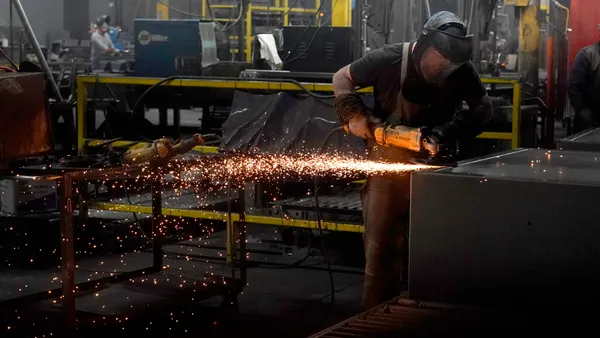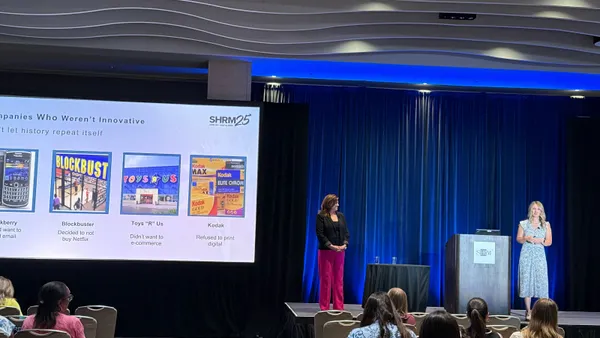Dive Brief:
- While company leaders appeared confident in their recruiting, employee engagement, talent development and team efficiency practices in a McKinsey & Company survey, non-manager respondents said CEOs and managers are actually the reason talent practices are unsuccessful. When asked to evaluate 21 talent practices, 56% of the 500 U.K. managers polled said that they adopted at least 16 good practices, and more than 25% said they adopted all 21 practices. But according to McKinsey, non-CEO respondents admitted that their organizations had trouble carrying out many talent practices and cited CEOs and managers as the problem with implementation.
- Fifty-two percent of the non-CEO respondents said that leadership didn't value using "clear structures, roles, and responsibilities to streamline work." Another 46% said company leadership saw no value in performance evaluations that assessed senior leaders and managers on their people-management skills, compared to only business performance. Survey results also showed that the same percentage of non-CEO respondents said leadership didn't value helping and rewarding people whose performance showed continuous improvement.
- When asked what prevents their companies from identifying the top talent in their organization and assigning them to work on the most important projects, 37% of respondents said the practice didn't suit their culture and one-third said "we have more important things to worry about." Respondents expressed these views despite evidence showing that companies that regularly align talent with strategic priorities are more than twice as likely to outperform the competition, McKinsey noted.
Dive Insight:
Talent management can be in jeopardy when leadership isn't supportive. As the McKinsey study points out, when leaders don't value identifying outstanding performers and putting them on key projects, it can frustrate workers — and that could spur turnover. Lauren Mason, principal and strategic lead for Mercer's Global Rewards Practice, previously told HR Dive the three reasons that top performers leave: their organization has not given them an experience that motivates them, engages them or aligns with their personal and professional goals. A frustration with the organization's long term goals might also drive talent to jump ship. Tension between leadership and workers can lead to a negative culture, as well.
HR must urge the C-Suite to adopt a people-centric approach, reminding senior leadership of the consequences of not investing in workers in this current talented labor shortage. Providing career development opportunities could be one way to retain ambitious employees who want to establish themselves within their organizations. As past research has shown, when workers don't see a future for themselves in their companies, they leave.











